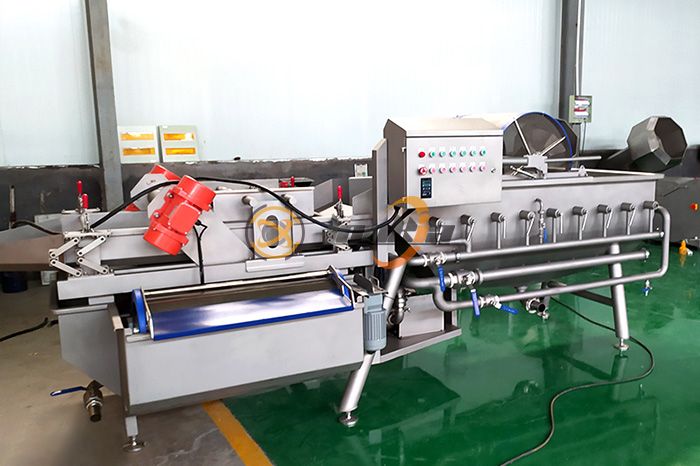In the food processing industry, hygiene, efficiency, and productivity are critical. Whether you're operating a vegetable packing house, a central kitchen, or a large-scale processing plant, investing in the right commercial vegetable washing machine can significantly impact the quality of your output and the operational cost of your facility.
This guide will help you understand what to look for when choosing a vegetable washer for your business.
1. Identify Your Processing Volume
The first step in choosing a machine is understanding your daily production needs. For high-capacity operations, an industrial vegetable washing machine with a continuous or rotary system is ideal. For smaller batches, a compact commercial washer may be sufficient.
Tip: Look for a machine that can grow with your production scale, especially if expansion is planned.
2. Understand the Types of Vegetables You Handle
Not all vegetables are washed the same way. Leafy greens like spinach or lettuce require gentle bubbling or air agitation systems, while root vegetables like potatoes and carrots may need stronger water flows or brush rollers.
Common machine types include:
Bubble-type washing machines – Great for leafy and fragile produce
Drum-type or brush washers – Ideal for firm and root vegetables
Ozone vegetable washing machines – Add food-grade ozone to enhance pesticide removal and sterilization
Choose a system that suits the texture, shape, and contamination level of your raw materials.

3. Consider Hygiene and Food Safety Features
Food safety is non-negotiable. Look for machines that are:
Made from 304 or 316 stainless steel
Equipped with ozone or UV sterilization options
Designed for easy cleaning and drainage
CE or ISO certified for food processing use
LONKIA Machinery, for example, offers commercial vegetable washers with integrated ozone systems and water recycling features, combining efficiency with sanitation.
4. Evaluate Customization and Integration Options
Depending on your factory layout or existing equipment, you may need a machine that can be:
Integrated into an automated production line
Fitted with additional rinsing, sorting, or conveying units
Tailored for specific vegetable types or sizes
Leading vegetable washing machine manufacturers often offer customized solutions based on client needs.
5. Review Water and Energy Efficiency
Efficient water and power usage directly affect your operating costs. Choose machines that include:
Water filtration and recirculation systems
Adjustable water flow and pressure
Low-power motors with high efficiency
Over time, these features can lead to substantial savings.
6. Compare Price vs. Long-Term Value
While comparing vegetable washing machine prices, don’t just look at the initial cost. Factor in:
Maintenance frequency and ease
Spare parts availability
Warranty and after-sales service
Expected machine lifespan
A slightly higher upfront investment in a quality washer often delivers better ROI.
Conclusion
Choosing the right commercial vegetable washing machine is about more than just price. You must consider capacity, vegetable type, hygiene requirements, energy efficiency, and service support. Brands like LONKIA Machinery offer customizable, high-quality washing solutions trusted by food processors worldwide.
Make your choice based on long-term needs and reliable manufacturer support—and your investment will pay off for years to come.
